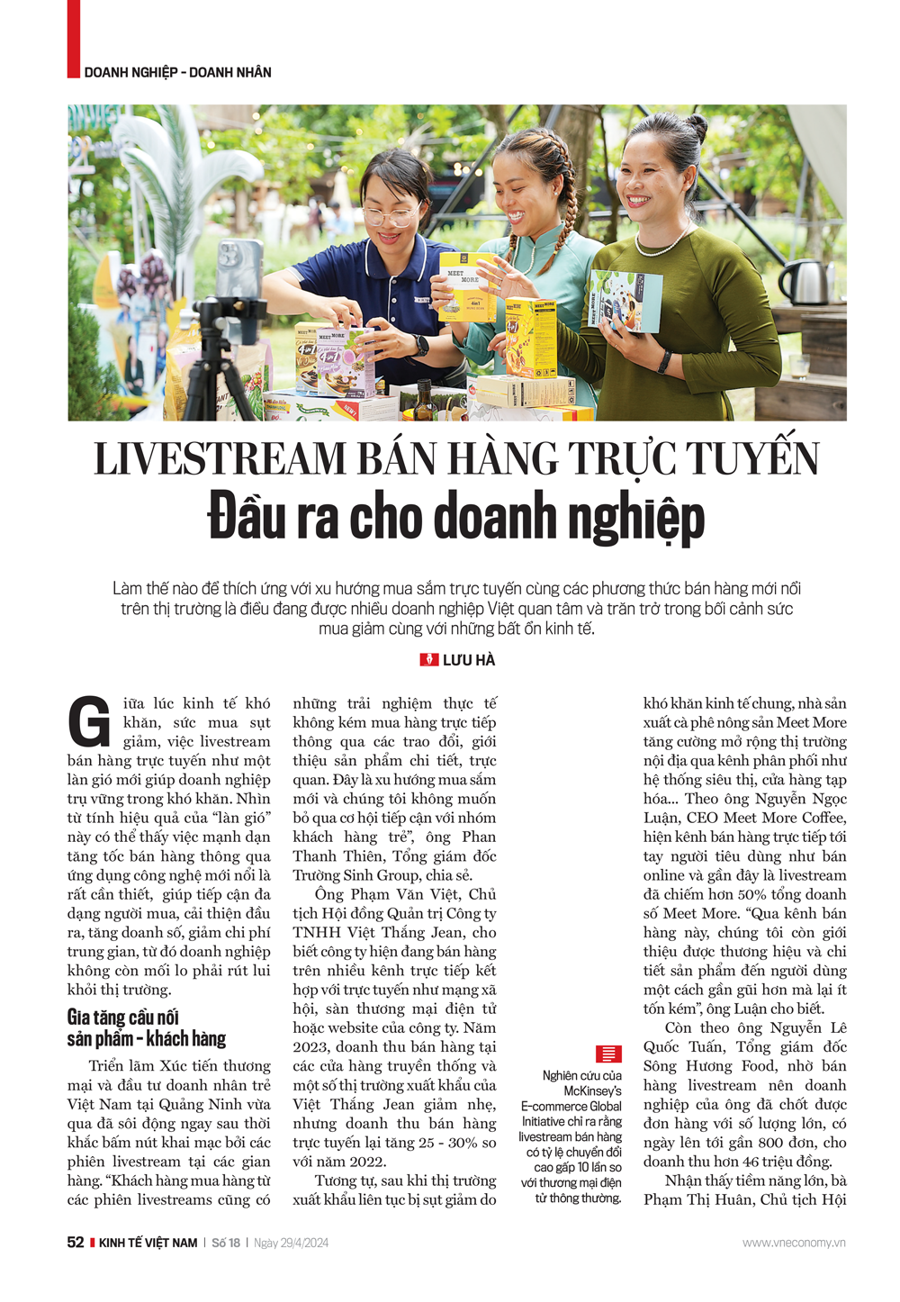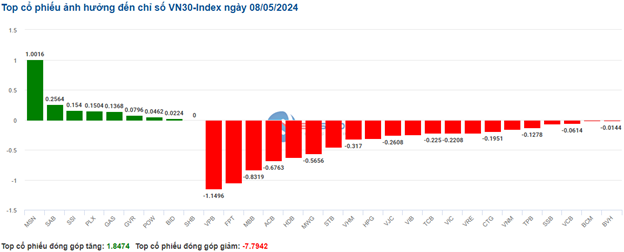Amid economic downturns, livestreaming online sales serves as a fresh breeze that helps businesses stay afloat during challenging times. Judging from the effectiveness of this “new wind,” it is apparent that businesses must boldly accelerate their sales through emerging technological applications. Such a move would not only help them reach a wider audience but would also boost their output, increase their sales, and reduce intermediary costs. As a result, businesses no longer face the threat of being forced out of the market.
INCREASING THE CONNECTION BETWEEN PRODUCTS AND CUSTOMERS
The recent Vietnam Young Entrepreneurs Trade and Investment Promotion Fair in Quang Ninh was abuzz with activity right after the opening ceremony, thanks to livestreaming sessions at various booths. “Customers who purchase products from livestreaming sessions have experiences that are just as real as those who buy directly, as they can ask questions, and receive detailed and visual product introductions. This is a new shopping trend, and we do not want to miss the opportunity to reach out to young customers,” shared Mr. Phan Thanh Thien, General Director of Truong Sinh Group.
Mr. Pham Van Viet, Chairman of the Board of Directors of Viet Thang Jean Company Limited, said that the company currently sells products on multiple channels, including physical stores, online platforms such as social media, e-commerce sites, and the company’s own website. In 2023, while sales revenue at traditional stores and in some of Viet Thang Jean’s export markets slightly decreased, the company’s online sales revenue grew by 25-30% compared to 2022.
Similarly, after witnessing a continuous decline in export markets due to the general economic downturn, agricultural coffee producer Meet More has expanded its domestic market through distribution channels such as supermarket chains and grocery stores. According to Mr. Nguyen Ngoc Luan, CEO of Meet More Coffee, direct-to-consumer sales channels such as online sales and, more recently, livestreaming, now account for over 50% of Meet More’s total revenue. “Through these sales channels, we can introduce our brand and provide detailed product information to consumers in a more intimate and cost-effective manner,” said Luan.

Meanwhile, Mr. Nguyen Le Quoc Tuan, General Director of Song Huong Food, said that his company has secured a large number of orders through livestreaming sales, sometimes reaching nearly 800 orders in a single day, resulting in revenue of over VND 46 million. Recognizing the immense potential, Ms. Pham Thi Huan, Chairwoman of the Board of Directors of Ba Huan Company, also plans to expand the company’s online sales channel to keep up with the trend and increase the competitiveness of its products. Numerous other businesses have also expressed their intention to increase their direct-to-consumer sales through e-commerce and livestreaming channels, rather than solely relying on supermarket distribution or retail agents and stores.
During the announcement of high-quality Vietnamese products in Ho Chi Minh City in March, Mr. Tran Le Nguyen, General Director of Kido Group Corporation, stated that in recent years, many large enterprises have shifted to online business models, with Kido’s online sales revenue currently accounting for nearly 70%. “In the past, we only sold products through traditional channels, but today, we must sell through technology. By reducing intermediary costs, logistics expenses, marketing and sales expenditures, and leveraging promotional codes and vouchers offered by platforms, we can provide benefits to consumers,” said Nguyen.
In addition to e-commerce, increasing direct customer touchpoints is another strategy employed by Vietnamese businesses to overcome output challenges and expand their domestic markets. Since the beginning of the year, Garment Company 10 has opened a series of fashion centers in various provinces and cities. Mr. Than Duc Viet, General Director of Garment Company 10, explained that these centers aim to provide the best possible service to customers in the region. Moreover, they align with Garment Company 10’s strategy of “exporting locally,” targeting international tourists visiting Vietnam.
Similarly, footwear manufacturer Biti’s maintains over 200 self-operated stores in addition to approximately 700 retail agents nationwide. “Our self-operated stores are not just sales outlets; they serve as a direct touchpoint with consumers, embodying the Biti’s brand. To increase sales and further engage with customers, we continuously update and expand our sales channels. Wherever our customers are, we will be there,” said Ms. Vu Le Quyen, CEO of Biti’s Company.
https://postenp.phaha.vn/chi-tiet-toa-soan/tap-chi-kinh-te-viet-nam








































